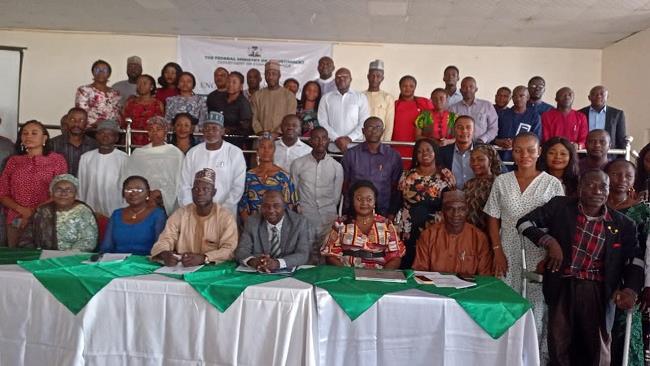Chuks Oyema-Aziken
Stakeholders have called for a solid legal framework at the subnational level to address the country’s short-lived environmental pollutants.
Building a strong legal regime, they contend, will compel people to obey the rules and ensure that strict disciplinary measures are taken against violators. They added that it would also make it easier to attract both domestic and foreign investment since investors will have confidence that their investments will be secure
They made the call at the Department of Climate Change’s (DCC), Federal Ministry of Environment two-day stakeholder engagement workshop for the implementation of the Federal Executive Council’s (FEC) approved national action plan to reduce short-lived climate pollutants, held on May 15 and 16, 2023, in Keffi, Nasarawa State.
In a goodwill message, Nasarawa State Commissioner of Environment, Kwanta Yakubu, said his government was committed to working with others to promote green economy.
According to him, Nasarawa State is endowed with arable land for plant cultivation and carbon regeneration, which is crucial in combating climate change as a result of challenges to forest resources generated by a forest-dependent population.
“Be assured that Nasarawa State will fully participate in this component of the revised NDCs in meeting our climate mitigation goals and targets in line with our state’s commitment,” he said.
In his opening remarks at the meeting, Mr. Charles Ikeah, Director Overseeing Office of the Permanent Secretary, Federal Ministry of Environment said that
solutions to cut SLCPs include actions like replacing and properly disposing HFCs in refrigeration and air conditioning, reducing methane from waste (including food waste) and agriculture; reducing black carbon emissions from household cooking, lighting and heating, heavy-duty engines in trucks, buses and ship and reducing leaks from oil and gas production.
Represented by Aliyu Yauri, Deputy Director, DCC, he said “The measures and technologies to reduce SLCPs are available today and practical, technically feasible and cost-effective and putting them in place can bring immediate Climate benefits. Reducing SLCPs can rapidly slow the rate of global temperature rise, complement efforts to mitigate carbon dioxide emissions and keep warming below 2 degree Celsius. And delayed efforts to mitigate either carbon dioxide or SLCPs will have negative and potentially irreversible, consequences for global warming, rising sea levels, food security and public health.”
The Director, DCC, Dr. Iniobong Abiola-Awe, said the goal of the conference was to bring stakeholders, particularly those at the subnational level, together and engage them in discussions about all aspects of the plan’s execution.
She noted that the gathering was also meant to improve collaboration, learn about stakeholders’ activities, and share opportunities and progress information.
The director, who was represented by Mrs. Asmau Jibril, overseeing head of the mitigation division, stressed that it was critical for interested parties to collaborate in order to reduce emissions in the primary sectors listed in the work plan and enable Nigeria to meet its promise to reduce emissions.
“You know, we’ve committed to the international community that Nigeria will cut 20% of its greenhouse gas emissions unconditionally by 2030 and 47% conditionally with global assistance,” she said.
She urged the delegates, particularly those at the subnational level, to initiate projects that will tackle short-lived pollution in their respective states and assist Nigeria in meeting its international obligations under the United Nations Framework Convention on Climate Change (UNFCCC).
Agbo Chinonso, chief operating officer of Schrodinger Greentech Ltd., informed participants in a paper he presented at the event on best practices for lowering SLCPs in the agricultural, industrial, waste, and energy sectors that one of the approaches that can be used to combat this particular setback is to raise awareness at the grassroots level.
The benefit, he explained, is to instill behavioral change because people’s views toward waste products have to change if the government is to accomplish its emission reduction targets.
He suggested that manufacturers be provided incentives such as tax credits and subsidies on the importation of specialised components in order to increase local adoption of these products.
The full implementation of Nigeria’s National SLCP Plan has the potential to reduce black carbon and methane emissions by 83% and 61% in 2030 compared to a baseline scenario, respectively. Additionally, the implementation of 22 identified mitigation measures would also be effective at reducing other air pollutants, and would reduce carbon dioxide emissions by 14% in 2030, contributing to Nigeria achieving its international climate change commitments.



